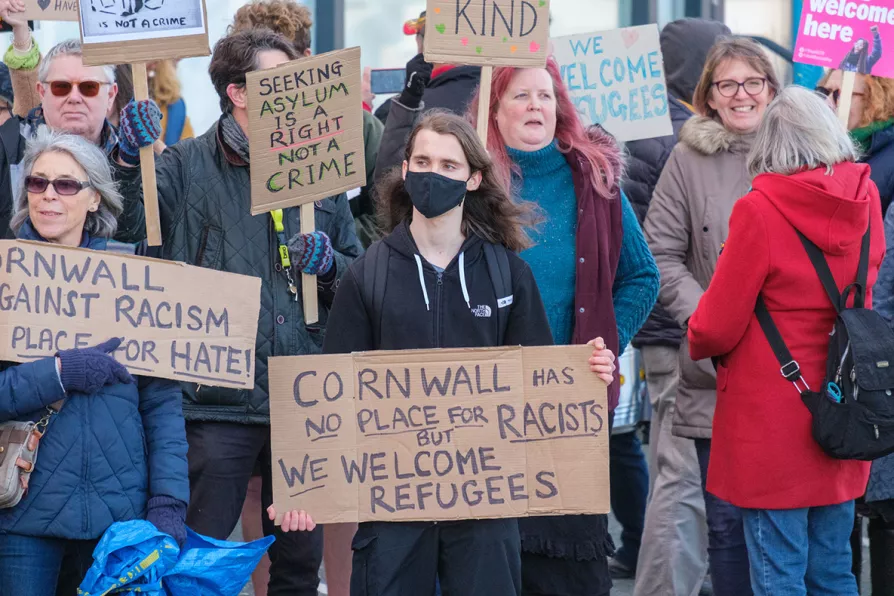RAMZY BAROUD offers six reasons why Netanyahu is prolonging conflict in the Middle East

 Anti-fascists from Cornwall Resists, stand outside the Beresford Hotel in Newquay, Cornwall, which houses refugees, as protesters from the far-right group Patriotic Alternative mount their own protest opposite
Anti-fascists from Cornwall Resists, stand outside the Beresford Hotel in Newquay, Cornwall, which houses refugees, as protesters from the far-right group Patriotic Alternative mount their own protest opposite
GIVEN the recent developments both in Parliament and on the streets, we should recall what Georgi Dimitrov said1935.
Fascism was not something “over and above” capitalism — even though that was its claim. Nor was it primarily an expression of the despair of the lower middle class — even though this composed part of its base.
It was: “The open terrorist dictatorship of the most reactionary, most chauvinistic and most imperialist elements of finance capital.”

Listening to our own communities and organising within them holds the key to stopping the advance of Reform UK and other far-right initiatives, posits TONY CONWAY

TONY CONWAY assesses the lessons of the 1930s and looks at what is similar, and what is different, about the rise of the far right today












